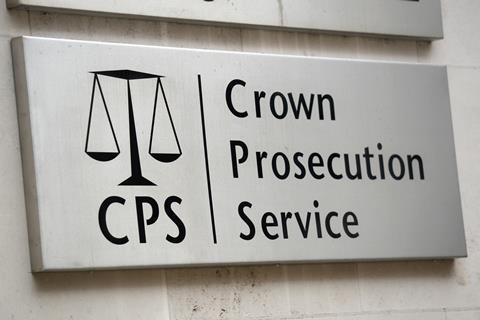Three asylum seekers who were jailed after they were intercepted crossing the English Channel had their convictions overturned this week by the Court of Appeal, which held that the Crown Prosecution Service misunderstood the law on facilitating illegal entry into the UK.
All three were alleged to have steered a boat carrying migrants from France towards the UK and were convicted of an offence of assisting unlawful immigration under section 25 of the Immigration Act 1971. They were sentenced to between two and six years’ imprisonment.
The Court of Appeal said it is necessary under section 25 for the prosecution to prove that someone ‘facilitated the “entry” without leave into the United Kingdom of a non-EU citizen’. Where a person disembarks at a port and remains within its ‘approved area’, they do not ‘enter’ the UK.
However, investigators adopted ‘a heresy about the law’, which was ‘passed on to those who prosecuted them, and then further passed on to those who were defending them and finally affected the way the judges … approached these prosecutions’, Lord Justice Edis said.
Giving judgment, Edis LJ said that an asylum seeker who ‘merely attempts to arrive at the frontiers of the United Kingdom in order to make a claim is not entering or attempting to enter the country unlawfully’.

‘The true requirements of the law and the relevance of the distinction between entry and arrival was not alive in the minds of the Border Force officers who apprehended these appellants, processed their cases, interviewed them and caused them to be charged,’ Edis said.
When the four men were interviewed under caution, questions proceeded on the ‘erroneous basis’ that they had ‘entered’ the UK. The particulars of the offence in the indictments also ‘did not identify how immigration law was breached by the attempted entry’.
This uncertainty ‘was not clarified by prosecuting counsel at trial’ and the judges trying the cases ‘were accordingly misled into believing that there was no defence available in law to these appellants’, Edis said.
The court invited the CPS ‘to help us on how it came about that the law was misunderstood when investigating, charging and prosecuting these cases’.
Edis said that ‘when drone technology enabled interception of the small boats at sea more regularly, and the number of small boats also greatly increased, criminal investigations and subsequent prosecutions were launched … without any careful analysis of the law and appropriate guidance to those conducting interviews, taking charging decisions, and presenting cases to courts’.
This meant that both judges and defence practitioners also ‘followed the flawed view of the law which developed without conducting analysis of their own resulting in an erroneous shared approach’.
The prosecution is seeking a retrial in relation to a fourth man, who was sentenced to four-and-a-half years’ imprisonment, whose conviction was also found to be unsafe. Edis added that seven similar pending applications will be heard by the court in January, alongside ‘any others which may have been listed by then’.
A CPS spokesperson said: ‘Since prosecuting these cases, new judgments have clarified a very complicated section of law.’ They added that revised guidance was published earlier this year.



























10 Readers' comments